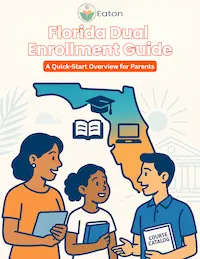Florida Scholarship Compliance: Next Steps, Transferring Schools, and Using Funds Properly
For many homeschooling parents, discovering Florida’s wide array of scholarship options—like the Florida Tax Credit (FTC), Family Empowerment Scholarship for Educational Options (FES-EO), and Personalized Education Program (PEP)—sparks exciting possibilities. These programs help offset the cost of private school tuition, part-time classes, tutoring services, and other education-related expenses. However, to make the most of these opportunities, it’s crucial to understand Florida Scholarship Compliance and what it entails. Below, we’ll explore everything from transferring schools to using funds correctly, and we’ll highlight how to get more help if you need it.
Why Florida Scholarship Compliance Matters
Florida Scholarship Compliance ensures parents and scholarship recipients follow state guidelines so that funds are used for legitimate educational purposes. The rules don’t exist to complicate your life; rather, they protect families, educational providers, and the integrity of Florida’s scholarship programs. Compliance covers a few key areas:
- Proper Fund Usage: Parents must allocate scholarships exclusively toward allowable expenses such as tuition, curriculum, or standardized testing.
- School Eligibility: Scholarships apply only to state-approved private schools or providers.
- Documentation: Both parents and schools need to keep track of invoices, reimbursements, and any changes to a student’s enrollment status.
When you adhere to Florida Scholarship Compliance, you not only safeguard your eligibility but also streamline your entire homeschooling process. For a deeper look at how scholarship funds can benefit homeschoolers, you might want to check out our post on How to Get a Step Up Scholarship for Florida Homeschoolers.
Florida Scholarship Compliance: Next Steps & Requirements
Let’s break down the essential elements of compliance you’ll encounter once your child is awarded a scholarship:
- Maintain Up-to-Date Information
- Keep your contact details and address current with both Step Up For Students and the Florida Department of Education (FLDOE).
- Stay in touch with your private school or part-time program to ensure accurate enrollment status.
- Monitor Funding Deadlines
- Scholarships such as FTC and FES-EO generally follow a quarterly funding schedule.
- PEP students need to submit a Student Learning Plan (SLP) each year; if it’s late, scholarship disbursements can be delayed or reduced.
- Adhere to Testing & Assessment
- FES-EO and FTC full-time private school students in grades 3–10 must take an approved standardized test each year.
- PEP students (grades K–12) must submit annual assessment results directly through their Education Market Assistant (EMA) account, as outlined in the official PEP in Florida: End-of-Year Testing Guidelines.
- Check School Eligibility
- A private school must be registered with the FLDOE to receive scholarship funds. If you enroll your child in a non-approved school, those costs aren’t reimbursable.
- Protect Your Login Information
- For your child’s safety and financial security, never share your Step Up For Students or EMA login credentials with a third party or service provider.
Familiarizing yourself with these requirements will set you up for success. If you still need clarity about Florida’s legal homeschooling framework, you might find Homeschool Requirements in Florida: A Practical How-to Guide insightful.
Transferring Schools Under Florida Scholarship Compliance
Even the best-laid homeschool or private school plans can change. Whether you’re unsatisfied with your chosen school, relocating, or looking for a new curriculum approach, Florida scholarship rules allow you to transfer schools—but it must be done correctly.
- Withdrawal Process
- Notify the current school and review its withdrawal policy (some require advanced notice or final payments).
- The school must promptly unenroll your student in the EMA system within five (5) business days.
- Funding Implications
- If your child attended a school for at least ten (10) days in a funding quarter, that school receives the full quarter’s payment.
- Any cost-sharing arrangement for the remainder of the quarter is up to the two schools and the family to negotiate (not a state-mandated process).
- Final Overpayment or Underpayment
- If a school was overpaid, Step Up For Students will recover the difference in the next funding cycle.
- If additional tuition is owed, the parent or guardian must approve a final invoice from the old school.
Keeping Florida Scholarship Compliance in mind during a transfer can save you from confusion or financial hiccups down the road. You’ll find additional tips on how to handle scholarship transitions in How to Use Florida Scholarship Funds Legally.

Using Scholarship Funds Properly: Essential Guidelines
Arguably the most important aspect of Florida Scholarship Compliance is spending scholarship dollars within the designated scope. Here are crucial pointers:
1. Authorized vs. Non-Authorized Expenses
Scholarship funds must be used for educationally relevant purchases, such as:
- Private School Tuition & Fees
- Curriculum Materials & Instructional Programs
- Standardized Testing
- Tutoring Services (if the tutor meets state requirements)
On the flip side, certain expenses are explicitly non-reimbursable. For instance, after-school care, fundraising fees, or optional extracurricular activities not recognized by the FLDOE are off-limits.
2. Documentation & Record-Keeping
- Receipts and Invoices: Keep them all. You may need to submit proof of payment or service.
- Reimbursement Requests: You can pay out-of-pocket and file for reimbursement, or set up direct pay through the EMA platform—just ensure the provider is eligible.
3. Refunds and Rebates
If you get a refund for a service initially paid with scholarship funds, the money belongs back in your child’s scholarship account. Keeping track of these refunds helps maintain compliance and ensures other families can continue to rely on these programs.
4. Deadlines & Proration
Funding can be prorated if you delay tasks like confirming school enrollment or submitting your Student Learning Plan (PEP). For some families, the difference between meeting these deadlines and missing them is the difference between receiving 100% or 50% of their yearly scholarship.
Curious how scholarship timelines fit into your daily homeschool structure? Best Homeschool Schedule: How Many Hours Does It Take? offers helpful time-management tips.

Final Tips on Florida Scholarship Compliance & Where to Get Help
- Stay in the Loop with Step Up For Students
- The organization’s Customer Engagement Center is available weekdays (8:00 a.m.–5:00 p.m. EST) via phone or online chat.
- They can clarify policy changes, application deadlines, or account management steps.
- Double-Check Official Guidelines
- If you have lingering questions, refer to the Florida Department of Education’s official site and Florida Statutes for up-to-date policy specifics.
- Another reputable source for educational choice data and guidelines is EdChoice.
- Make Use of EMA’s Tools
- The Education Market Assistant (EMA) platform helps families track scholarship balances, pay providers, and manage reimbursements. Keep your login details secure!
- Combine Compliance with Homeschool Best Practices
- Scholarship compliance is one piece of the puzzle. Consider reading Homeschool Florida: Your Ultimate How-to Guide for a more complete view of structuring your child’s education in Florida.

Looking Ahead: Sign Up for a Homeschool Online Class
Staying on top of Florida Scholarship Compliance can feel like a lot—especially when you’re also planning lessons, buying materials, and juggling family life. One way to lighten your load? Consider enrolling your child in one of our K–8 homeschool online classes. We offer flexible scheduling, specialized subjects, and supportive instructors. It’s a fantastic way to build upon your scholarship benefits while ensuring top-tier instruction for your kids.
Ready to explore your options?
Sign up for a homeschool online class today.
In Closing
By understanding Florida Scholarship Compliance requirements, you’re setting your child’s education up for success—free from funding snags or administrative pitfalls. Keep lines of communication open with your private school or hybrid program, promptly handle any changes like transferring schools, and carefully track your allowed expenses. Each step you take will not only keep you aligned with Florida law but will also help you maximize the incredible opportunities that these scholarships provide.
Ultimately, your due diligence ensures both a fruitful academic journey for your child and a hassle-free experience for you. Here’s to a compliant, enriching, and rewarding homeschool adventure ahead!



